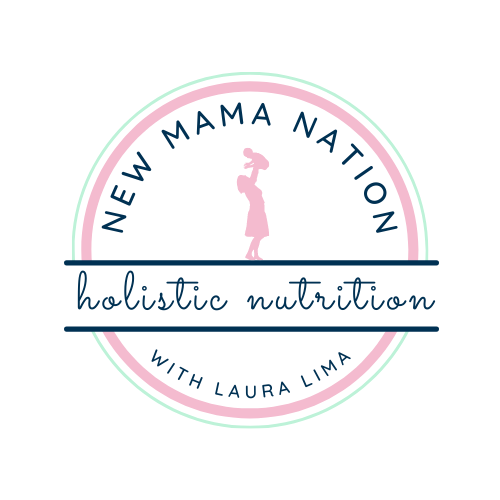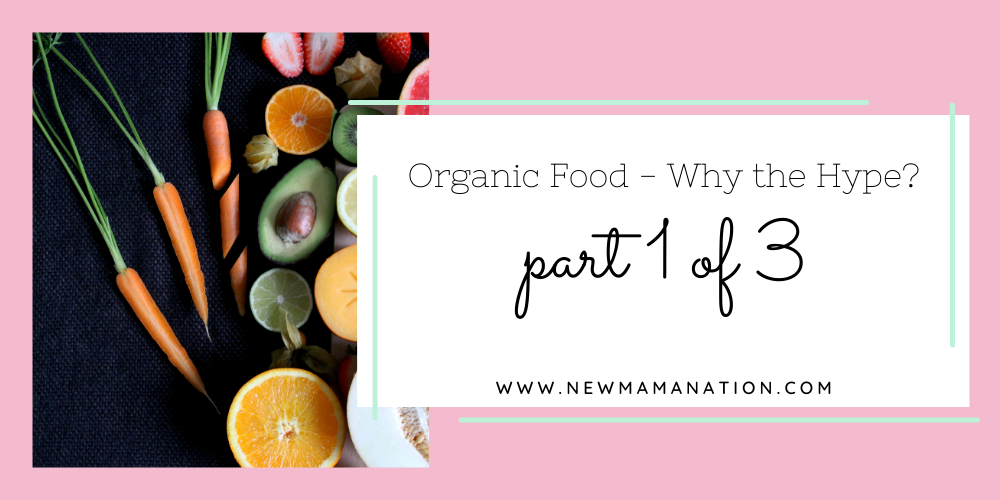“No civilization has ever lived beyond the health of its soil, and only by the most artificial means have we stretched this rule and extended this civilization.”
-Dr. Bernard Jensen, DC, Ph.D
Ain’t that the truth.
In celebration of Organic Week (which is this week, hooray!), I’d like to dive deep into the world of organic food and clear up some common myths and misconceptions that surround this hugely important, and sometimes touchy, topic. I want to reveal the true hazards of chemicals as well as the risks of mineral deficiencies, because I feel that organic food is sadly, and dangerously, undervalued.
I’ve heard it all: organic isn’t necessary. There’s no more nutrients in it compared with conventional. It’s too expensive. Well.
I hope to enlighten you to the increasing importance of eating organic foods, especially as our world becomes more and more toxic every day. I hope you will realize its value, or at the very least, have a sparked desire to research this topic further. A highly recommended book on the topic of real food and how the soil determines the health of the plant, which then determines the health of our bodies, is called Empty Harvest by Bernard Jensen and Mark Anderson. Check it out.
Organic isn’t just for hippies, or hipsters, or health nuts… it’s for all of humanity.
Think about it. Your car wouldn’t work properly if you put the wrong stuff into it, right? It’s the same with our bodies, but the difference is that we don’t feel it right away. We tend to get so far into our symptoms before we take them seriously. Yet with our car, as soon as we sense trouble, we head straight for the mechanic. How can we be so careless with our bodies?
Luckily, we’re extremely resilient, but it will catch up with us eventually if we’re not careful. It’s time for a change, a big one, one that switches up our priorities and puts our health first.
On an organic farm, you will find living, fertile soil that is not controlled by chemicals, but rather, by nature itself. It’s a sustainable system that is harmonious with the environment, and also with us humans. When you see it this way, you realize that that is the way it should be, the way it traditionally was before the massive invasion of synthetic chemicals and artificial processes. The microorganisms within the soil (fungus and bacteria — the good guys) keep each other in check. They also break down anything that falls upon the land into available plant food, and take minerals from the soil and help the plant absorb them. This natural soil system doesn’t require synthetic fertilizers because the soil is rich in minerals, and the microorganisms help the plant take them in.
On the point of the expense of organic food, it needs to be said that it’s not always the case; organic food isn’t all or always crazy expensive. And, you get what you pay for. Not only are you getting pesticide free produce, you’re also getting mineral-rich, nourishing food. It takes a lot more work, time, planning, patience, and caring to farm organically, and I personally want to give my money to the farmer who cares about my health and that of the environment. My money is paying not only for the nutrient-rich food itself, but also the hard work that went into getting it from seed to my plate. I definitely don’t want to support huge corporations that are manufacturing chemicals that could eventually lead to cancer or other diseases. No way.
And here’s another thing: we’re so willing to spend money on our cars, our clothes, the latest technology, knickknacks for our homes… but what about our food?
Let’s go back a little bit here. If we don’t have our health, then we really have nothing. We can’t live fully, vibrantly, pain-free, and without worry. So we can’t enjoy all those great things we spent our money on. And guess what? Good food ensures our good health.
What is good food? It contains an abundance of nutrients, is free of toxins and chemicals, and nourishes our body in all the right ways. And it’s real. That is my definition of organic food.
But organic food is so much more than that, though. It means nutrient-rich soil, farmers who care about us and our health, and working with nature, not against it. The very minerals found in soil are the ones from which our bodies are made, so it is of paramount importance to maintain soil integrity and fertility.
These days, we’re so used to killing things. It’s true. Just look at the rampant use of antibiotics, antibacterial soap, and hand sanitizers. When we kill all the microbes, including the friendly guys, we create a sterile environment. But few of us realize the importance of microorganisms on our planet — in the soil — in our bodies — in keeping us healthy and our immune systems strong.
When it comes to farming, these microorganisms are like the soil’s immune system. If we harm and suppress it, the soil’s health deteriorates… and in turn, our health deteriorates.
Organic farmers cannot rely on heavy duty pesticides to deal with invasive weeds or pests (and thank goodness for that); instead, they have to employ more natural methods. They often plant certain crops next to each other which both attract different pests; sometimes one predator is another’s prey. Thus, they keep each other in balance. And in truth, some weeds can actually be helpful in keeping certain pests away and adding minerals to the soil. There’s nature at its finest.
To be continued…
Click here for Part 2 of 3 in our organic series!
P.S. If you’re interested in learning about the specific standards that Canada has for organic certification, click here.


Are they not genuinely cured with any form of insecticide or pesticide.
Take note however that the USDA organic seal only assures you
that the farm uses the appropriate organic methods and procedures.
Organic farming has been defined in different ways by food suppliers, intellectuals, environmentalist and critics.
Orchard farming involves fruits or nut producing trees grown for commercial utilization. Organic
means grown without most conventional pesticides and fertilizers.
Very true… and even within the organic realm, there are acceptable practices and those that go above and beyond for optimal soil health and therefore human health. I encourage people to talk to the farmers at their local farms to find out how they do things… and support the ones who do it right.
Are they not genuinely cured with any form of insecticide or pesticide.
Take note however that the USDA organic seal only assures you
that the farm uses the appropriate organic methods and procedures.
Organic farming has been defined in different ways by food suppliers, intellectuals, environmentalist and critics.
Orchard farming involves fruits or nut producing trees grown for commercial utilization. Organic
means grown without most conventional pesticides and fertilizers.
Very true… and even within the organic realm, there are acceptable practices and those that go above and beyond for optimal soil health and therefore human health. I encourage people to talk to the farmers at their local farms to find out how they do things… and support the ones who do it right.